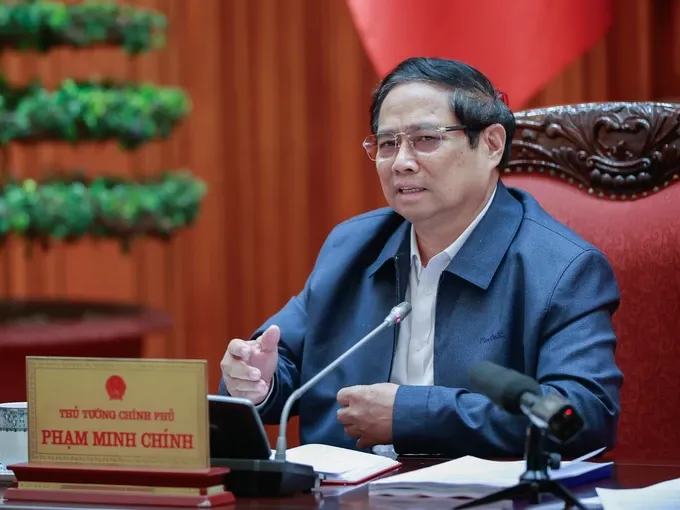Prime Minister Pham Minh Chinh has urged the banking sector to make an important contribution to maintaining macroeconomic stability, promoting growth, ensuring major balances; reducing costs to reduce lending rates; and providing credit to prioritised industries and programs.

Visiting the State Bank of Vietnam (SBV) on February 3 - the first working day after the nine-day Tet holiday, PM Chinh commended the central bank for proactively monitoring both international and domestic economic developments. He praised the SBV for implementing comprehensive solutions that created favorable conditions for businesses and individuals to access credit, thereby supporting the restoration of production and business activities in 2024.
These efforts have contributed to economic growth, macroeconomic stability, inflation control, and the operational safety of the credit institution system, the Prime Minister noted.
The central bank has maintained its policy interest rates despite high global rates and has flexibly managed exchange rates to help mitigate external shocks. Additionally, the SBV has coordinated monetary policy tools effectively, managed gold trading activities, ensured the stability and safety of the credit institution system, and successfully addressed non-performing loans.
PM Chinh emphasized that the banking sector, particularly the SBV, must continue to implement fiscal and monetary policies in a firm, flexible, and effective manner. This will help create a supportive financial and banking ecosystem that enables businesses and individuals to thrive and drive economic development.
Looking ahead, the Government leader noted that 2025 is a critical year with several key tasks, including accelerating efforts to meet the socio-economic development goals for the 2021-2025 period, targeting 8 percent economic growth, and striving for double-digit growth in the following years. The year will also see the organisation of Party congresses at all levels in preparation for the 14th National Party Congress, the streamlining of the state apparatus, and the celebration of major national holidays.
In this context, PM Chinh called on the banking sector to align its efforts with these goals and to effectively implement government resolutions. Specifically, the banking sector must make a significant contribution to maintaining macroeconomic stability, promoting growth, and ensuring key economic balances. It should focus on reducing costs to lower lending rates, prioritising credit for key sectors such as social housing development and the elimination of temporary and dilapidated houses. Additionally, the sector should direct credit towards revitalizing traditional growth drivers, such as investment, exports, and consumption—particularly for infrastructure development—and foster new growth drivers.
He also encouraged the banking sector to continue addressing weak banks, effectively managing bad debts, and leading digital transformation efforts. It should complete the national banking database, improve institutional frameworks, and ensure equal opportunities for individuals and businesses to grow.
























